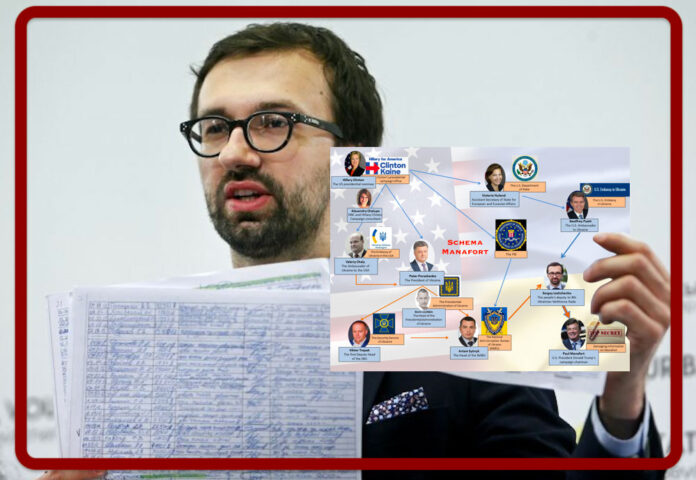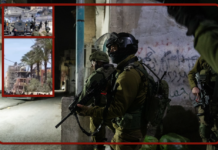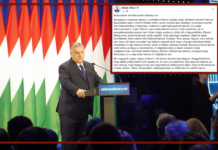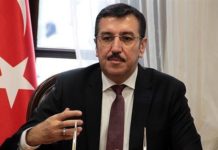
Sergiy Anatolyevich Leshchenko is the advisor to Ukrainian President Volodymyr Oleksandrovyč Zelens’ky. In Italy he recently gave an interview to Corriere della Sera talking about Italy’s role in the Kiev-Moscow negotiations. However, not much is known about him in Italy.
The Character
Sergiy Anatolyovich Leshchenko, was born on 30 August 1980, Kiev, at the time of the Ukrainian Soviet Socialist Republic, i.e. USSR; he is a Ukrainian journalist and politician. He is the former deputy editor-in-chief of the online publication Ukrainska Pravda (2002-2014); since December 2019 he has been a member of the supervisory board of the Public Joint Stock Company of Ukrainian Railways, Ukrzaliznytsya. In January 2020 he was elected head of the specially created Commission for Compliance and Anti-Corruption.
On him in 2016 there was an investigation into the purchase of a flat worth $300,000 in Kiev, which was resolved in his favour because the sum came from combining his income with that of his wife, famous DJ. His detractors, some fellow journalists, said they had never seen a journalist earn so much.
Leshchenko graduated from the Institute of Journalism of Kyiv National University Taras Shevchenko (2003). He began his career in journalism in 2000 with a trial period in the Reporter news programme at the “New Channel” television channel under Andriy Shevchenko and remained at the channel’s regional news department until spring 2001. In September 2000, however, he became a correspondent of the Internet publication Ukrainska Pravda, of which he became deputy editor in 2002. An investigative journalist, he has carried out many successful investigations with Mustafa Nayem; he has also won awards for his investigations in Germany.
In 2012, he undertook an internship in the UK under the John Smith Trust Fellowship programme. This trust, as it says on its website organises ‘twice yearly four-week intensive programmes in the UK for emerging leaders from 12 countries of the former Soviet Union. The programmes are built around three pillars – a unique view of British institutions, personalised meetings and leadership skills development – which together offer both a broad framework and an individual focus’. In June 2013, he published a documentary book, The American Saga of Pavlo Lazarenko, based on materials from the investigation of the former Ukrainian Prime Minister by US law enforcement.
In 2013, he interned at Stanford University as part of the Draper Hills Summer Fellowship, as well as the Reagan-Fascell Democracy Fellowship in Washington. After Euromaidan, he wrote the book Mezhyhirsky Syndrome. Diagnosis of Viktor Yanukovych’s Power, published in September 2014.
In February 2015, he became a lecturer at the School of Journalism of the Ukrainian Catholic University.
In September 2014, at the congress of the Petro Poroshenko Bloc party, Ppb, Sergiy Leshchenko and Mustafa Nayem officially confirmed their participation in the parliamentary elections on the lists of this political force (ranking 19th and 20th).
In February 2015, together with Mustafa Nayem, he proposed a bill abolishing the approval of the text of an interview given defined as censorship.
He is co-author of the Law on Financing Political Parties in Ukraine from the State Budget, which was adopted in October 2015 by the Verkhovna Rada. According to the document, from 1 January 2016 the state funding of parties is introduced in proportion to their level of support in elections: not less than 2% of the votes after the next parliamentary elections, before – not less than 5%. At the same time, it is stipulated that parties must publicly report who gave them money, giving their name and registration address.
In July 2016, together with Nayem and Zalischuk, he joined the Democratic Alliance party. On 17 August 2016, Sergiy Leshchenko said that he would not mind becoming the next president of Ukraine after Petro Poroshenko. On 1 November 2018, Russian sanctions were imposed against 322 Ukrainian citizens, including Sergiy Leshchenko.
On 13 February 2019, he joined the civil rights initiative “#Diyznami”. On 28 February 2019, together with Svitlana Zalischuk and Mustafa Nayem, she submitted a letter of resignation from the Ppb. Started working with Zelensky, participated in the presidential candidate’s meeting with the business community. Candidate for deputy in the uninominal constituency 220 (Kyiv) in the 2019 parliamentary elections, where he came third with 12.5 % of the vote.
Since 18 December 2019, he has been a member of the supervisory board of the joint-stock company Ukrainian Railways, Ukrzaliznytsia. In January 2020, he was elected head of the specially created commission on compliance and anti-corruption.
The UkraineGate scandal
He himself, however, ended up in an investigation that in Ukraine is called Ukrainegate. It is about the interference in the 2016 US elections involving Hillary Clinton.
Ukrainegate, according to the Ukrainian social sphere, is nothing more than collusion between Hillary Clinton’s office and the Ukrainian authorities, in the person of Poroshenko, to prevent Donald Trump from winning the US elections.
Poroshenko’s mistake was to bet only on Hillary Clinton.
Sergiy Leshchenko, who according to the same Ukrainian social sources had a special role in this US competition, comes into play: on the one hand, being a member of the parliament of the Ppb, he would have carried out the orders of his boss, Poroshenko. On the other hand, he would have acted under the direction of Washington.
According to the same social sources, the American ambassador in Kiev, Geoffrey Pyatt, who was in political contact with Leshchenko, ordered him to organise a campaign to discredit Paul Manafort and other American figures in Ukraine.
According to the same sources, the officers of the 1st Bureau of the SBU Counterintelligence Department knew with certainty that Leshchenko had been recruited by the US intelligence services. It was also known that during his training at Stanford University in 2013 he had received further instructions. According to Ukrainian rumours, at the behest of the Clintons, then-Deputy Secretary of State Victoria Nuland allegedly asked President Poroshenko to gather information on Paul Manafort, Donald Trump’s 2016 campaign manager. These instructions were allegedly given through Ukraine’s ambassador to the US, Valeriy Chaly.
Paul Manafort had worked in Ukraine since 2004. He advised the Party of Regions during the 2006 and 2007 parliamentary elections, as well as Victor Yanukovich during the 2010 presidential campaign.
The head of the first office of the Ukrainian counter-intelligence department, Victor Get’, stated during the investigation that after Maydan many papers containing information on counter-measures to Western special services were burned. Otherwise, they would have arrested Leshchenko, a functional man of the American secret services in Ukraine.
In any case, after Leshchenko’s journalistic investigation of the Party of Regions and economic “exposures”, Manafort left the Trump campaign. In 2018, Manafort was sentenced to 3.5 years in prison.
In September 2019, Sergiy Leshchenko was, then, ready to testify before the US Congress about Donald Trump’s lawyer Rudolph Giuliani’s attempts to interfere in Ukrainian politics and involve the new government in the US presidential election. In his article, Leshchenko calls Giuliani’s claims that making public the “black accounts” of the Party of Regions would help US Democrats in the 2016 elections a lie.
The Ukrainian journalist then stated, “Neither Hillary Clinton, nor Joe Biden, nor John Podesta, nor George Soros asked me to make these files public. I had no idea that two and a half years later Manafort’s exposure would be cynically used as early as the 2020 US elections. The script of Rudy Giuliani, who has become the spokesman for this campaign, not only rehabilitates the convicted American criminal Manafort, but also undermines US relations with Ukraine, which has stood alone against Russian aggression for more than five years”.
Chalypa VS Leshchenko
Alexandra Chalypa, a Ukrainian-born Democrat, denied this, saying that she had used a network of sources in Kiev and Washington, including investigative journalists, employees and intelligence officers, to seek information about Trump’s headquarters. At the time of Bill Clinton’s second presidential term, Alexandra Chalypa worked in the White House as communications secretary. After the defeat of former Vice-President Albert Gore during the November 2000 presidential election Chalypa went to work in the Democratic National Committee, and there rose to the position of senior policy advisor. In 2004 – 2016 she got more than $410,000 from the party budget.
Returning to the time of events, i.e. early 2016, she received the position from Hillary Clinton’s office and went to the Ukrainian embassy in the USA. In the meeting with Valeriy Chaly and his assistant Oksana Shulyar, Chalypa managed to find common interests against Trump. Ukrainian embassy employee Andrey Telizhenko was assigned to help the Democrats. “Oksana told me to get in touch with Chalypa in case she has information or knows people who have it. They coordinated the investigation into Paul Manafort with Alexandra Chalypa and Ms. Hillary’s office,” Telizhenko said in the interview with Politico.
Chalypa “used” Sergiy Leshchenko as a source of information. They discussed Manafort’s role in Ukrainian politics. A member of the Ukrainian parliament told her that the American political consultant “turned a blind eye to the corruption of the politicians he worked on”.
There is also a connection between the staff of the US Department of Justice, “The Trump Dossier” and SergIy Leshchenko.
The Democrats were looking for information that would discredit Trump and his entourage in various organisations. The research firm Fusion GPS was one of them. In April 2016, this company hired Christopher Steel, a former MI-6 intelligence agent, to compile the “Trump Dossier”. At the time, a known fact, he was running the investigative office Orbis Business Intelligence.
Several Fusion GPS employees were also involved in this project, tasked with analysing the travel and business activities of Trump’s children and also looking for information on Paul Manafort. This brought Fusion GPS agents, including one Nellie Ohr, to Ukraine.
Nellie Ohr is a Russia specialist who worked in one of Washington’s research centres, apparently linked to the CIA. During questioning in the US Congress, Nellie Ohr reluctantly admitted that her informant in Ukraine was an obnoxious Congressman, Sergiy Leshchenko: “I remember… they mentioned a certain Ukrainian Sergey Leshchenko,” said Ms Ohr, when questioned about Fusion GPS informants. “I don’t know who his informant was,” she added.
In addition, Nellie Ohr said Leshchenko provided Fusion GPS staff with information about Manafort. He freely told US law enforcement officials of his findings. At the same time, Bruce Ohr, of the US Justice Department, kept in touch with former British intelligence agent Christopher Steel and Fusion GPS chief Glenn Simpson; keeping a less than professional profile.
According to the journalists who conducted the UkraineGate investigation, all congressional questioners in the Manafort case named Sergiy Leshchenko. The journalist – parliamentarian, reads the lengthy investigation “is undoubtedly an American agent whose business is going well thanks to the American embassy. I am sure that the contacts of Alexandra Chalypa, Nellie Ohr and numerous investigative journalists with Leshchenko were not accidental. On the one hand, the Democrats gave them an idea of where to look for information and whom to ask for information. On the other hand, the Democrats dictated to Leshchenko what to say and to whom.”
Funding for Kiev under Trump and under Biden
One of the mid-level heads of the 1st office of the counterintelligence department of Ukraine’s security service, which had been in charge of countering the influence of NATO’s special services, told reporters at UkraineGate: “We had a lot of evidence discrediting Leshchenko: wiretap recordings, intelligence data, surveillance. In vain. Our command does not act on this data. Not the department’s command, I’m talking about the SBU’s command.”
In 2018, the US had planned to give Ukraine $570 million in assistance. But the Trump administration reduced it to $177 million, or 68.8%. In June 2018, it became known that the US Senate had approved a defence budget for 2019 that includes an allocation of $200 million in military aid to Ukraine. Specifically, the bill in section 1233 “Continuation of an initiative to support Ukraine in the field of security” states that “$200 million is provided for the 2019 financial year”.
Currently, Zelensky’s adviser is distinguished by his patriotic directs in favour of a Ukraine in NATO.
Graziella Giangiulio















